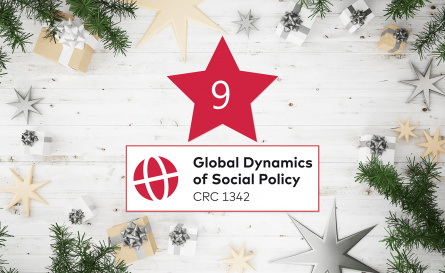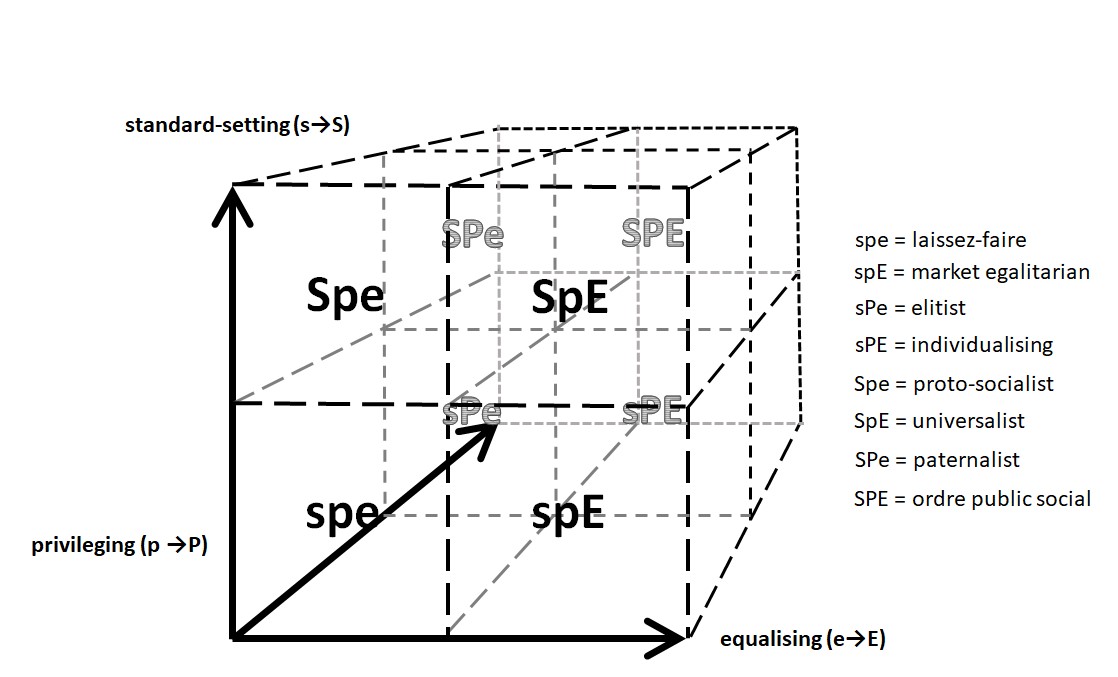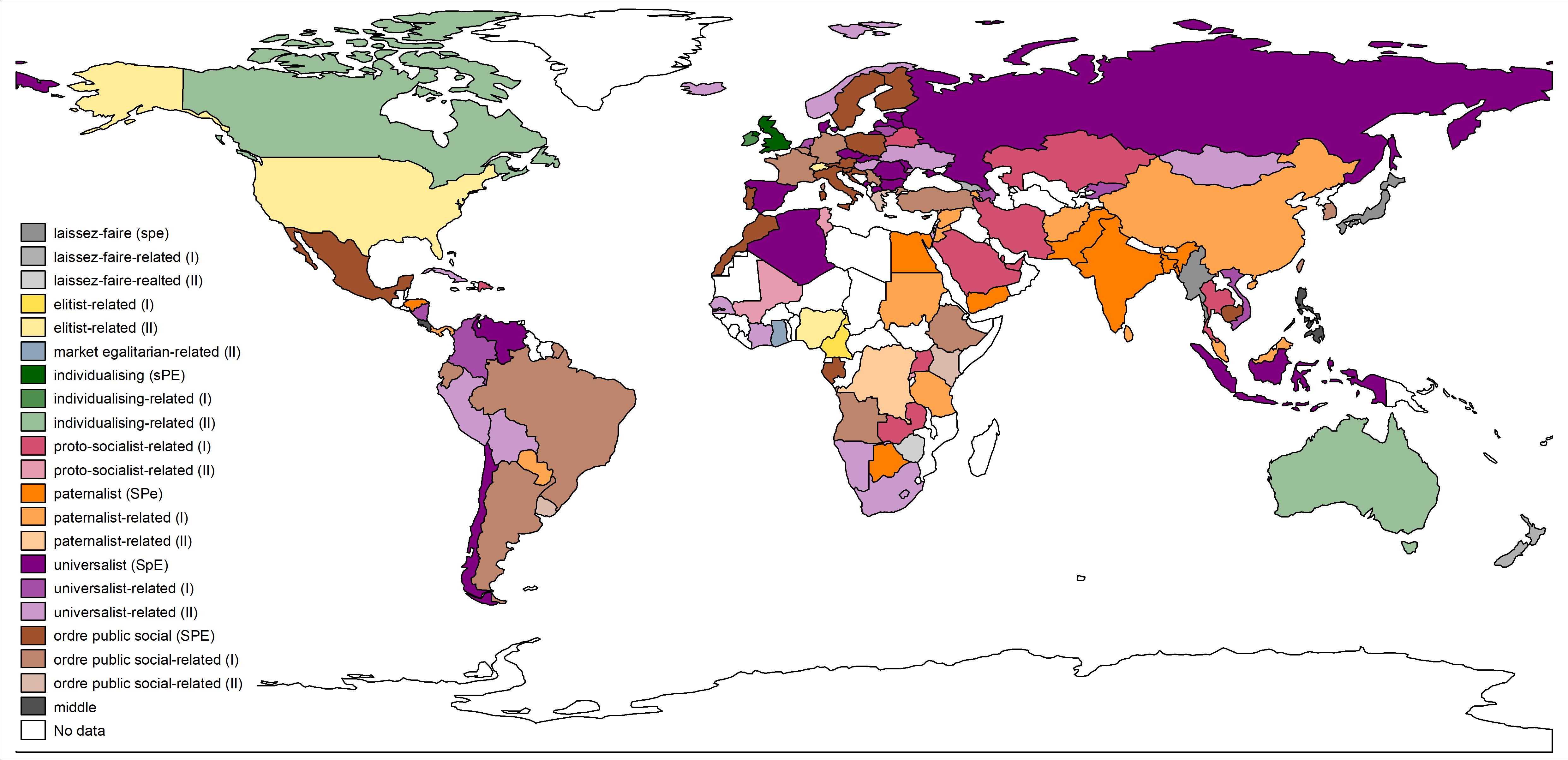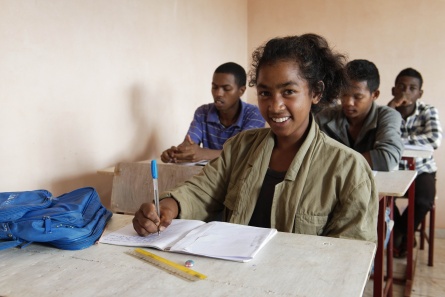
A03 Worlds of Labour: Laissez-Faire vs. Universalism
Discovering Functional Differentiation in Labour Law
One of the key results of project A03 "Worlds of Labour" (Mückenberger/Dingeldey) is the elaboration of the functional differentiation of labour law. So far, the historical development of labour law had been assessed in terms of strength of worker protection (or costs for employers), i.e. unidimensional. Our task is to offer a new perspective.
The differentiation into the three functions "standard-setting" (S), "privileging" (P) and "equalising" (E) allows to show the relationship between legal protection of workers and segmentation of labour markets. "S" represents protective labour standards concerning working time and dismissal protection, "P" norms introducing selectivity of protection and seniority rules, and "E" is formed by norms concerning antidiscrimination and equality rights for non-standard employment.
Based on the 36 indicators used for our Worlds of Labour-SPE index, we can show how eight ideal types have evolved historically in labour regulation, depending on the relative strength of each function. These range from the "laissez-faire" ideal type (spe), where each function measured is low, to the "universalist" ideal type "SpE", where the standard-setting and equalizing functions are strong, and the "ordre public social" ideal type (SPE) with strong selectivity as well, as the following figure shows.

The current (2013) set of ideal types based on own coding and CBR-LRI (Cambridge Centre for Business Research – Labour Rights Index) indicators results in the map shown below. It is used for the analysis of global patterns, but also for the historical emergence and differentiation of labour regulation. Here, figures and maps for each function (and indicator) are under construction also in historical terms.

SPE-Typology 2013 – Ideal types and first and second degree relatives (Data sources: CBR-LRI (2017) and own coding)
---
For further information, consult A03's working paper (Socium SFB 1342 Working Paper Series No. 5) and its forthcoming publications.
More about the research profile of project A03: Worlds of Labour. Normative Standards of Employment Relationships as National and Global Patterns of Welfare State Development
Have you missed some of the previous windows? Click here for the complete CRC 1342 Advent Calendar 2020.
Contact:
Prof. Dr. Irene Dingeldey
Dr. Heiner Fechner
Jenny Hahs
Prof. Dr. Ulrich Mückenberger















